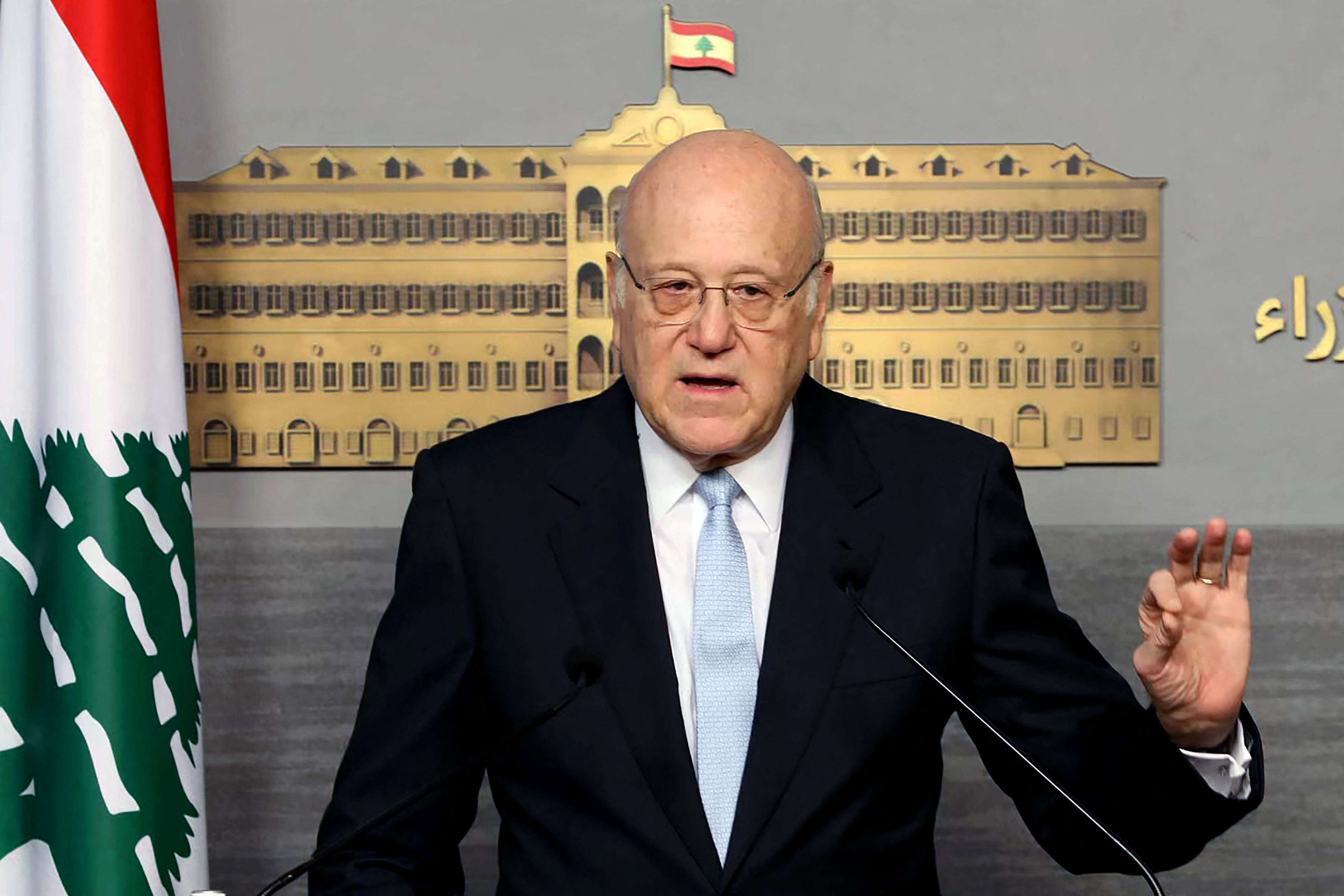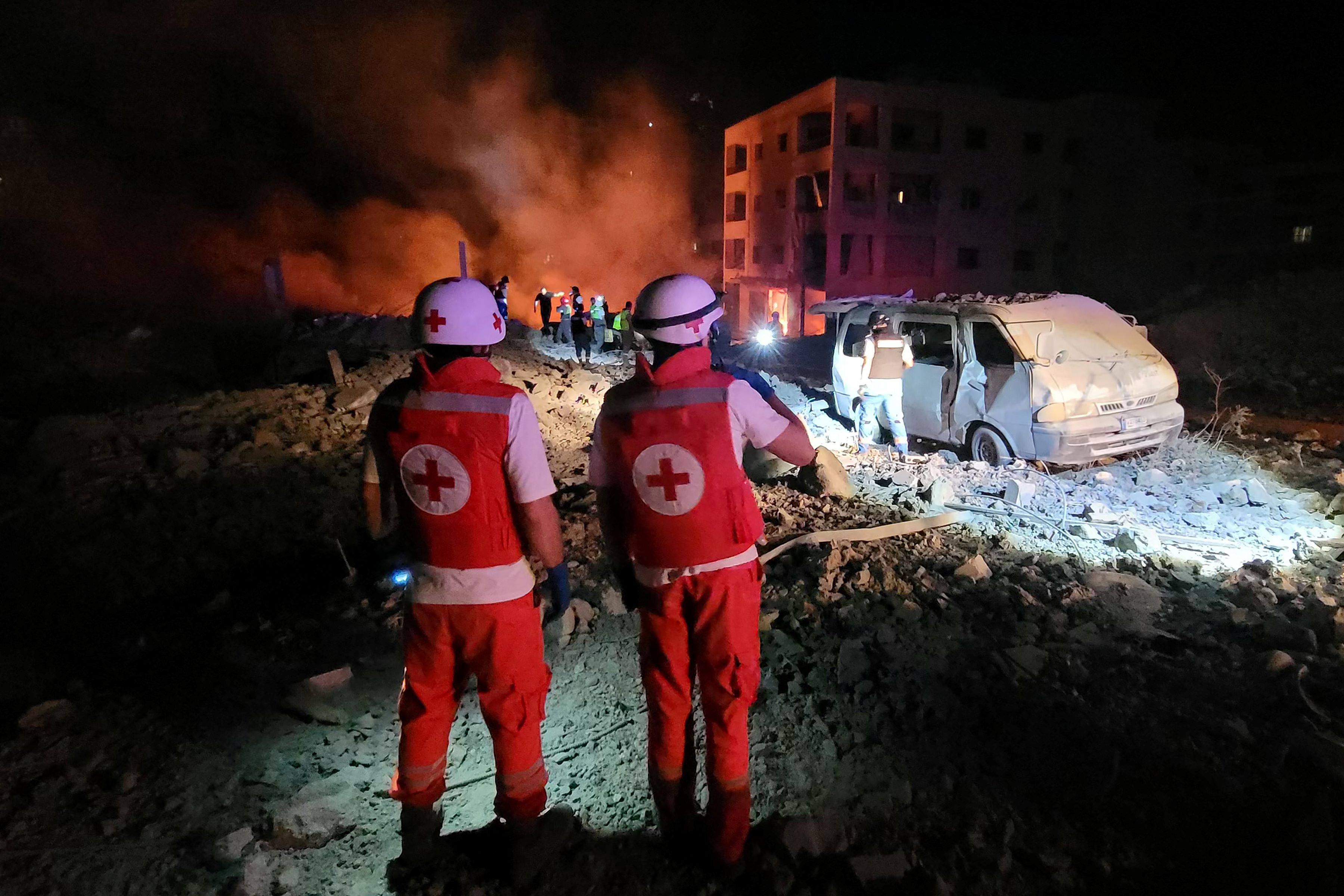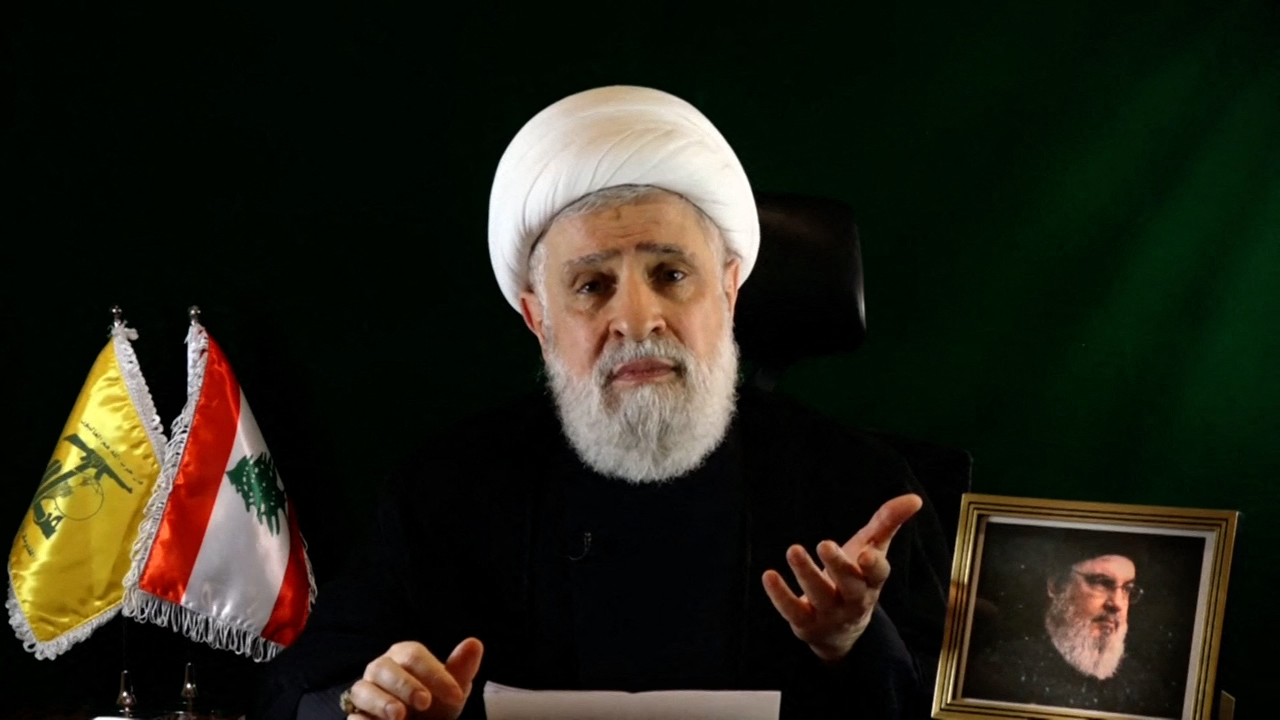
BEIRUT/WASHINGTON - Lebanese Prime Minister Najib Mikati said on Tuesday that he received "a kind of guarantee" from the United States to reduce Israeli escalation in Beirut and its southern suburbs.
"In our contacts with the American authorities last week, we received a kind of guarantee to reduce the Israeli escalation in Beirut and its southern suburbs," Mikati said, according to a statement released by his office.
Last week, the Lebanese Council of Ministers asked the UN Security Council to approve a ceasefire while affirming their full commitment to implementing Resolution 1701 and sending the army to the south to cooperate with the United Nations Interim Force in Lebanon (UNIFIL) forces there.
READ MORE: UNSC urges respect for peacekeepers
Adopted in 2006, the Resolution 1701 ended a 33-day war between Israel and Hezbollah. It called for a cessation of hostilities, Israeli withdrawal from Lebanon, and bolstering the UNIFIL to monitor the ceasefire alongside the Lebanese army.
Mikati said that the army is prepared to strengthen its presence in the South with about 10,000 additional soldiers, but this needs a lot of equipment, which is a fundamental issue for implementing the resolution.

Mikati said there is no need to link this resolution to other resolutions, such as Resolution 1559, as it would create additional disagreements among different parties.
ALSO READ: Head of Hamas' aerial operations killed in Israeli airstrike
Adopted in 2004, Resolution 1559 calls for withdrawing foreign forces from Lebanon, disarming all militias, and extending government control over all Lebanese territory.
The United States on Tuesday said it opposed the scope of Israel's airstrikes in Beirut over the past few weeks.
State Department spokesperson Matthew Miller said the US had expressed its concerns to Prime Minister Benjamin Netanyahu's administration on the recent strikes.
"When it comes to the scope and nature of the bombing campaign that we saw in Beirut over the past few weeks, it's something that we made clear to the government of Israel we had concerns with and we were opposed to," he told reporters, adopting a harsher tone than Washington has taken so far.
ALSO READ: US presses Israel on improving Gaza humanitarian situation
Separately, Secretary of State Antony Blinken and Pentagon chief Lloyd Austin wrote to Israeli officials on Sunday demanding concrete measures to address the worsening situation in Gaza and telling them to take specific actions within 30 days, US officials said.

Also on Tuesday, Netanyahu told President Emmanuel Macron of France during a phone conversation that he opposed a unilateral ceasefire and said he was "taken aback" by Macron's plan to hold a conference on Lebanon, according to an Israeli readout.
"A reminder to the French President: It was not a UN decision that established the State of Israel but the victory that was achieved in the War of Independence..," Netanyahu's office said in a separate statement.
The Elysee Palace did not immediately respond to a request for comment. The pair have previously clashed, including over Macron's call to halt arm sales to Israel.
Fighting continues
With diplomatic efforts stalled, the fighting continues.
The Israeli military said on Tuesday it had captured three members of Hezbollah's elite Radwan forces, adding that they had been moved to Israel for investigation. Hezbollah has not commented.
Its deputy chief Naim Qassem said earlier on Tuesday the group would inflict "pain" on Israel but he also called for a ceasefire.
ALSO READ: Israel kills at least 40 in Gaza, tanks deepen raid in the north
"After the ceasefire, according to an indirect agreement, the settlers would return to the north and other steps will be drawn up," Qassem said in a recorded speech.

There was no immediate comment from Israel, which says its operation in Lebanon aims to secure the return of tens of thousands of residents forced to flee their homes in northern Israel because of Hezbollah attacks.
Qassem said more Israelis will be displaced and "hundreds of thousands, even more than two million, will be in danger at any time, at any hour, on any day".
The UN refugee agency's Middle East director, Rema Jamous Imseis, said Israeli repeated evacuation orders to scores of villages in southern Lebanon meant over a quarter of the country was now affected.
READ MORE: UN agency says quarter of Lebanon under Israeli evacuation orders
"People are heeding these calls to evacuate, and they're fleeing with almost nothing," she told a briefing in Geneva.
Since Sept 23, the Israeli army has been launching unprecedented, intensive airstrikes on Lebanon in a sharp escalation with Hezbollah.
The death toll from Israeli airstrikes on Lebanon since the beginning of the Hezbollah-Israeli conflict on Oct 8, 2023, has reached 2,350, while injuries went up to 10,906, according to the Lebanese Health Ministry on Tuesday.


